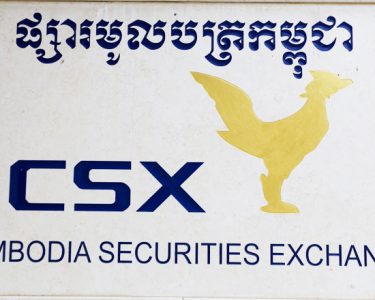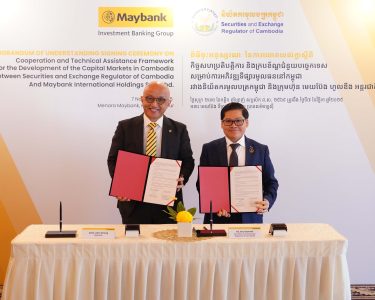Cambodia Investment Review
Cambodia has formally launched a new regulatory framework for infrastructure bonds, marking a significant milestone in efforts to deepen the country’s capital market and attract long-term investment into national development priorities.
The initiative—unveiled during a joint workshop organized by the Securities and Exchange Regulator of Cambodia (SERC) and the Australian government—introduces the Prakas on the Offering of Infrastructure Debt Securities, designed to enable both public and private entities to raise funds for large-scale infrastructure projects such as roads, utilities, and public works.
The launch event was held at the Hyatt Regency Phnom Penh under the high presidency of H.E. Sou Socheat, Director General of SERC, and H.E. Derek Yip, Australian Ambassador to Cambodia. The regulation was developed with support from the Cambodia-Australia Partnership for Resilient Economic Development (CAPRED), a key bilateral initiative focused on promoting sustainable and inclusive economic growth in Cambodia.
New Framework to Attract Long-Term Investment
The Prakas provides a legal and operational framework for issuing infrastructure bonds, detailing eligibility requirements, issuance procedures, and compliance responsibilities. It includes seven chapters and 25 articles and is accompanied by a separate guideline that outlines eligible sectors and financial structures that qualify under the scheme.
According to H.E. Sou Socheat, the new bond regulation aligns closely with Cambodia’s broader economic objectives, including the National Infrastructure Master Plan 2023–2033, which identifies a financing need of approximately USD36 billion over the next decade.
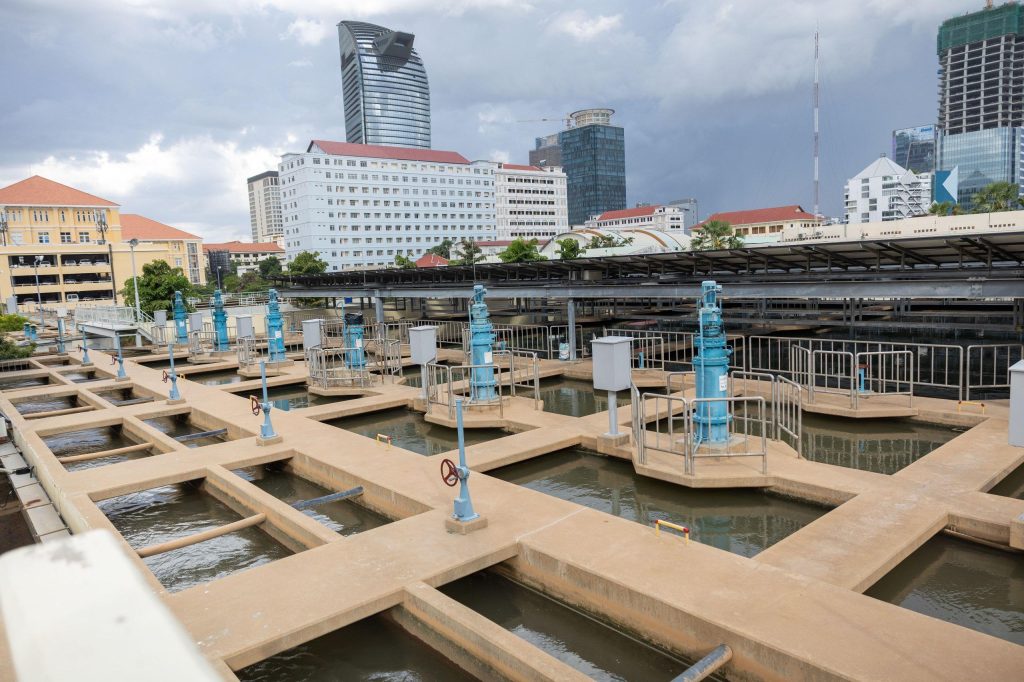
“The infrastructure sector is undeniably the backbone of all socio-economic activities,” Sou Socheat noted. “This Prakas represents our commitment to diversifying financial products and enabling sustainable financing options that support national development and environmentally responsible projects.”
Australian Support for Capital Market Development
Australia’s involvement in supporting Cambodia’s financial infrastructure is part of its Australia–Cambodia Development Partnership Plan 2025–2029, which prioritizes inclusive growth and economic resilience.
Ambassador Yip emphasized the role of capital markets in financing sustainable infrastructure. “Australia is helping Cambodia further develop its capital market. This Prakas is a critical step in expanding financing channels to fund the infrastructure Cambodia needs to improve livelihoods and strengthen economic resilience,” he said.
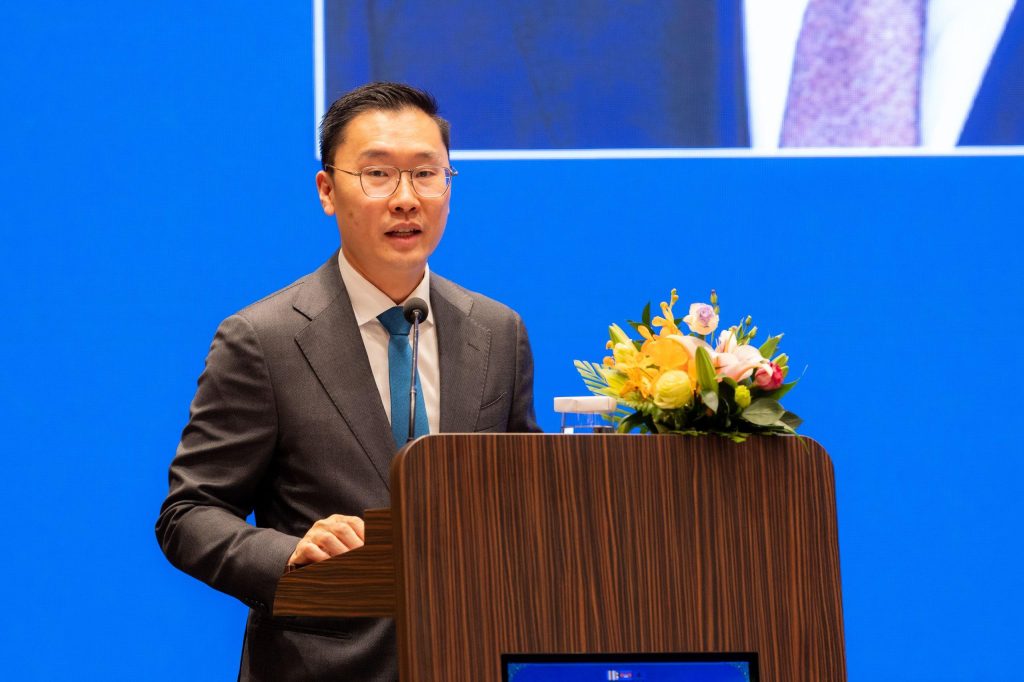
The move places Cambodia alongside regional peers such as Vietnam and Indonesia, which have already adopted similar financing models to mobilize private capital for public infrastructure.
Building Momentum in Cambodia’s Capital Market
Since the issuance of Cambodia’s first government bond in 2022, the local capital market has raised more than USD417 million through corporate bonds. The Infrastructure Bond Prakas is seen as a natural progression in the country’s efforts to create diverse and sophisticated financial instruments that attract both domestic and foreign investors.
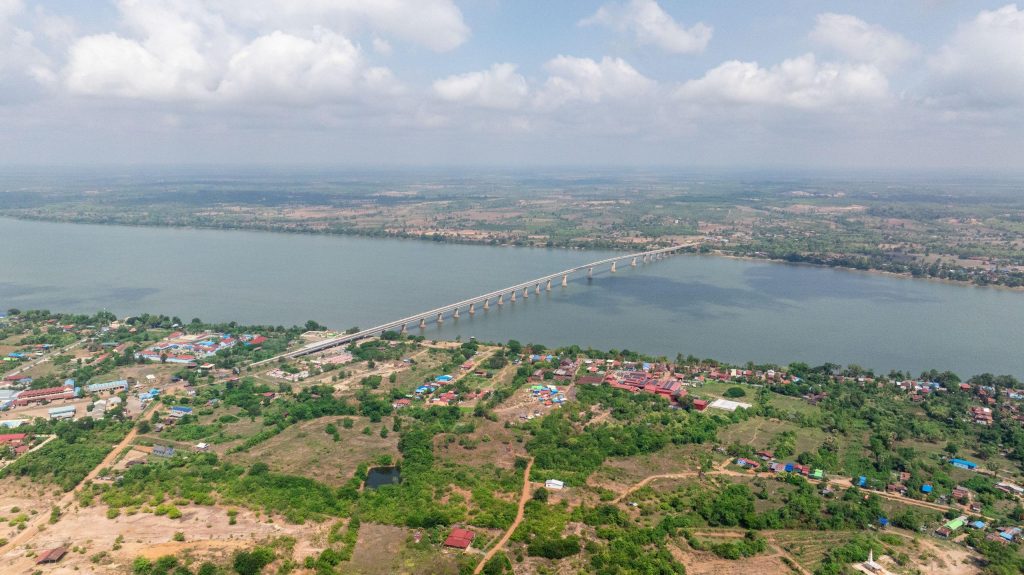
By offering a regulatory pathway for infrastructure bonds, the Prakas is expected to provide companies and project developers with greater access to long-term financing while offering investors a new asset class aligned with national development goals.
The launch reflects growing momentum in Cambodia’s capital market development, with increased emphasis on public-private partnerships, climate-resilient investments, and alignment with global sustainable finance practices.




